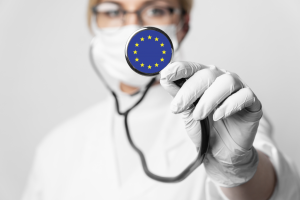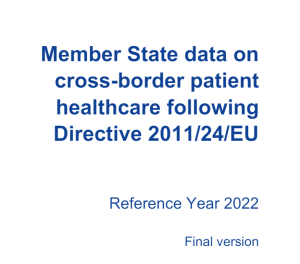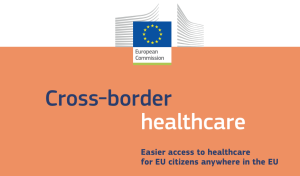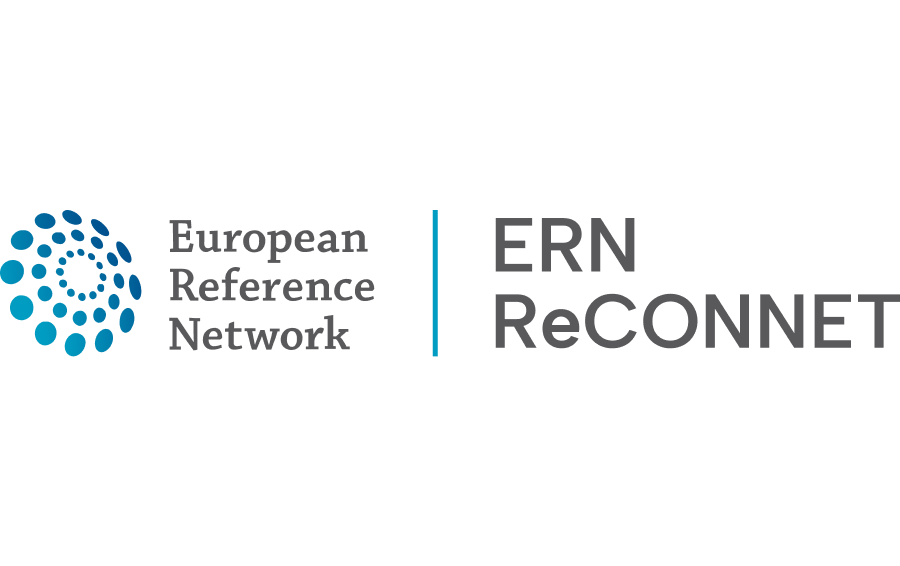ERN ReCONNET
Patients
Cross-border healthcare
Cross-border healthcare
 Cross-border healthcare refers to healthcare received by an individual outside of their Member State of affiliation.
Cross-border healthcare refers to healthcare received by an individual outside of their Member State of affiliation.
EU citizens have the right to receive healthcare in any EU country and to be reimbursed for cross-border care by their home country. To guarantee this fundamental right, the EU utilises different legislative instruments, one of which is Directive 2011/24/EU on the application of patients’ rights in cross-border healthcare.
This Directive also promotes cross-border cooperation, recognition of prescriptions and ensures the functioning of the European Reference Networks (ERNs).
The Commission adopted a report to the Council and the European Parliament on the operation of the Cross-Border Healthcare Directive on May 2022. The report includes, among others, information on patient flows, the financial implications of patient mobility, on the functioning of the ERNs and the National Contact Points. This report highlights that the Directive is still fit for purpose and relevant, however barriers to access healthcare across borders persist, largely due to its application by the Member States. The 24 European Reference Networks for rare, low prevalence and complex diseases are a major achievement for cross-border healthcare cooperation. However, their integration into national systems is necessary to safeguard their sustainability and to fully benefit rare disease patients.
 The Member State data on cross-border patient healthcare following Directive 2011/24/EU report can also be downloaded here:
The Member State data on cross-border patient healthcare following Directive 2011/24/EU report can also be downloaded here:
2022 Cross-border Patient Healthcare Data Report EN (PDF)
 In addition, the NEW Cross-border healthcare brochure is available in PDF here:
In addition, the NEW Cross-border healthcare brochure is available in PDF here:
Cross-border Healthcare brochure (PDF)
 In 2024, several national workshops are organized by national institutions to discuss about cross-border healthcare strategy and all the related matters with the national stakeholders.
In 2024, several national workshops are organized by national institutions to discuss about cross-border healthcare strategy and all the related matters with the national stakeholders.
Patients travelling to another EU country for medical care will enjoy equal treatment with the citizens of the country in which they are treated. If they are entitled to that healthcare at home, then they will be reimbursed by their home country. Their reimbursement will be up to the cost of that treatment at home. In some cases, they may need to seek authorisation before travelling for treatment, in particular if the treatment requires an overnight stay at an hospital or highly specialised and cost-intensive healthcare.
With health policies and systems increasingly interconnected, the Directive makes it easier to access:
- Information on available healthcare in other European countries
- Alternative healthcare options, and/or specialised treatment abroad.
The provisions strike the right balance between maintaining the sustainability of health systems, while protecting patients’ right to seek treatment outside their home country.
The Directive:
- Creates a network of National Contact Points to provide clear, accurate information on cross-border healthcare
- Creates EU rules on a minimum list of elements to be included in a medical prescription taken from one EU country to another (cross-border prescription)
- Encourages further development of European Reference Networks of medical expertise, broadening cooperation between EU countries, with added benefits to health technology assessments and e-Health.
You could find your National Contact Point here.



